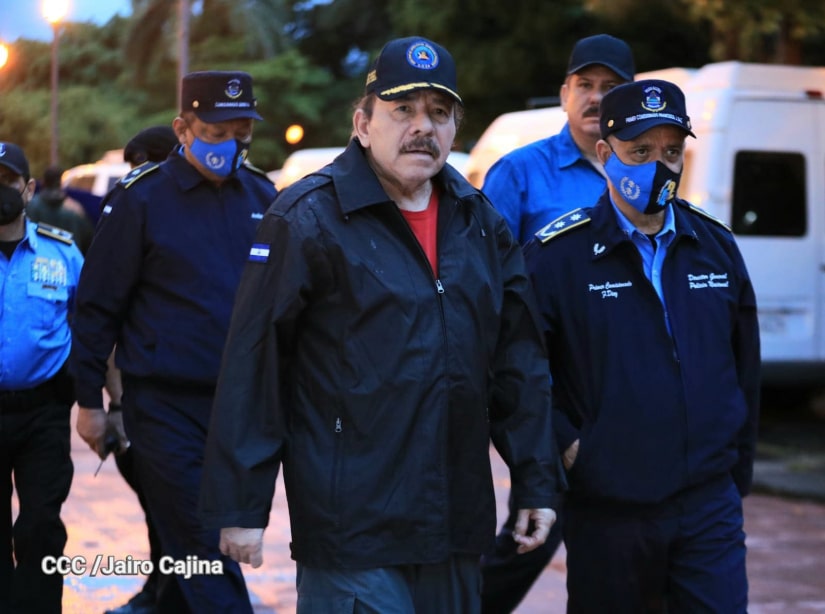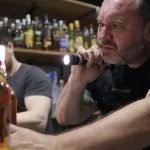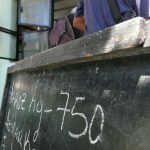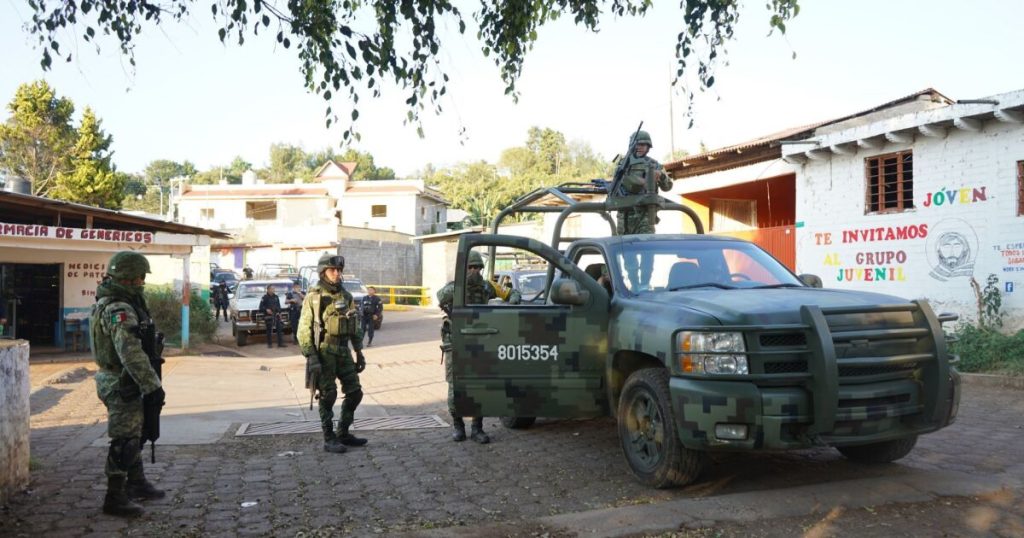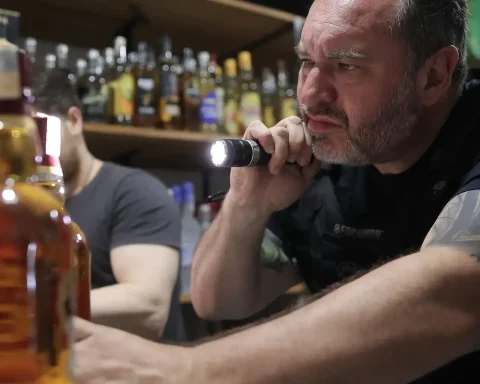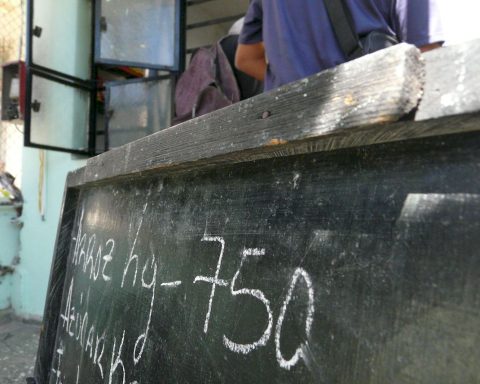The uncertainty generated by the economic and socio-political situation in Nicaragua has increased, according to the results of a survey by the Costa Rican firm CID Gallup, sponsored by CONFIDENTIAL, which was conducted between December 5 and 13, through interviews via cell phones to 1000 citizens nationwide. The results have a margin of error of +/- 3.1 points, and a confidence level of 95%.
68% of the Nicaraguans consulted indicated that Nicaragua is going the “wrong” direction, a result that exceeds the data recorded in the last 10 years, when it was averaged between 50% and 65%.
The study reveals that only 22% of those interviewed consider that the country is on the “correct” path, which shows a decrease of 1% compared to the survey carried out last October by the Costa Rican firm.
The participants in the analysis ranked the country’s economic situation as the main problem for Nicaraguan families with 52%, reflecting an increase of two percentage points compared to the results of the survey conducted two months ago.
Other problems mentioned by those interviewed were the political situation (19%) and insecurity due to the increase in crime (10%).
The results of this study, hired by CONFIDENTIAL, They come a month after an electoral farce was carried out in Nicaragua, in which the regime of Daniel Ortega and Rosario Murillo was re-elected for its fourth consecutive term, while keeping the country under a de facto police state, with more than 160 people imprisoned unfairly, among these seven candidates for the Presidency, civic leaders, human rights defenders, journalists, university students, political activists and former diplomats.
Greater fear of living in Nicaragua
In this context and when asked about the feeling that living in Nicaragua generates, the people consulted in the study agreed with statements that demonstrate their fear of being in Nicaraguan territory.
Among the phrases with which they most agreed are: in Nicaragua I feel fear (27%); in Nicaragua I feel very afraid (23%); and in Nicaragua I feel threatened by the Government and the Police (16%).
In contrast, there were 20% of those consulted who agreed with the phrase “in Nicaragua I feel totally free”, and 5% indicated that in the country their “freedom is protected by the Government.” 10% of the study participants decided not to answer or locate the phrases with which they felt identified.
In addition to the fear that they indicate they feel when being in Nicaragua, the interviewees pointed out the little credibility they have of the State institutions, since most of these were located in less than 30% in the range of “a lot or something”.
The lowest percentages of credibility were awarded to the National Police (29%), Nicaraguan Army (29%), official media (26%), Sandinista National Liberation Front (25%), National Assembly (24%), Supreme Electoral Council (24%), Presidency of the Republic (23%) and Supreme Court of Justice (21%).
On the other hand, the sectors and institutions with the greatest credibility continue to be: young people and university students (51%); Catholic Church (47%); independent media (47%); Evangelical Church (43%); and the opposition (42%).

The study also revealed that the work carried out by the Government to face the pandemic is negatively evaluated. 68% of those interviewed classified the government’s performance in the face of covid-19 as “fair” and “bad or very bad”, maintaining a percentage equal to that registered in October.
On the other hand, 32% of the people interviewed evaluated the government response to the pandemic as “very good / good”, which represented an increase of 1% compared to what was registered two months ago by CID Gallup.
80% of the study participants stated that they have not been vaccinated. Only 8% indicated that they were inoculated twice, completing the vaccination schedule; and 17% claimed to be immunized, but only once.
Health authorities in Nicaragua maintain that the country has “immunized” more than 70% of the Nicaraguan population. However, according to the Pan American Health Organization (PAHO), the country is actually close to reaching 40% of the population vaccinated against covid-19.
How to generate a change in Nicaragua?
The study also asked about what each citizen can do to support a positive change in Nicaragua, resulting in that 49% of those interviewed said they could do “little or nothing”, although a similar figure, 46%, considered that they would contribute “a lot. or something”.
46% of the participants who assured that they could support a positive change in Nicaragua mentioned ways such as promoting the culture of peace and tolerance (16%); vote for the opposition (14%); using your vote (14%); and discussing economic issues (10%). In a range of less than 10%, there were interviewees who considered that they would contribute by staying informed about what is happening in the country, focusing on their businesses, and working and participating in activities that benefit their communities.
The analysis indicates that those who consider that they can do “little or nothing” for a positive change in the country give reasons about how dangerous it is to try (24%); the importance of having “more people” because “just one cannot” (14%); and because there is a kind of resignation that “the country’s situation is what it is” (10%). They also mentioned, with percentages less than ten, that they could support little or nothing due to lack of economic resources, because they are too busy with economic problems, because there are no elections, because they do not feel that there is freedom of expression in the country or because they intend to migrate.

The intention to emigrate
Given all the economic and socio-political problems that Nicaragua faces, added to the lack of solutions that can be seen in the short term, the Nicaraguans consulted were also more open to the possibility of emigrating. The study reveals that 65% of those surveyed in December affirm with “a lot or something” that they would migrate if they had the opportunity. 33% assured that their possibility of doing so is “unlikely or not at all.”
Last October, according to another CID Gallup poll, 68% of Nicaraguans were “very much or somewhat” convinced to migrate if they had the chance, compared to 31% who indicated that it was unlikely or not at all likely that they would leave the country.
The main reason for emigrating, according to those who claim to be open to the possibility, is the country’s economic situation (62%). They also indicated that they would do it to seek a better future (21%) and because of the political situation in Nicaragua (6%).
According to the International Organization for Migration (IOM), 718,000 Nicaraguans left the country by mid-2020. So far in 2021, according to Manuel Orozco, a researcher at the Inter-American Dialogue, more than 100,000 Nicaraguans have emigrated, mainly destined for the United States, Costa Rica and Spain.

